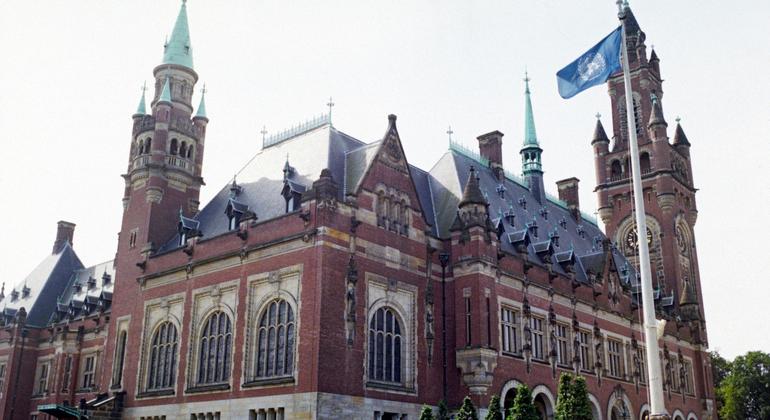UN World Court: Israel’s continued occupation of Palestinian territory is ‘illegal’


The court responded to a the request to seek the General Assembly’s advisory opinion on legal consequences arising from Israel’s policies and activities in the Occupied Palestinian Territory, including East Jerusalem.
Advice from International Court of Justice is a legal opinion given by the Court on matters of international law.
Unlike judgments in disputes between states, advisory opinions are non-binding and are issued by UN bodies such as the General Assembly or Security Council.
Although not legally binding, advisory opinions can shape international policies, increasing moral pressure and unilateral measures adopted by individual countries such as sanctions.
Israel’s Obligations
In it advisory opinionThe International Court of Justice has concluded that Israel’s continued presence in the Occupied Palestinian Territory is illegal and that it has an obligation to end this illegal presence “as quickly as possible”.
The opinion continued, Israel is also “obligated to immediately cease all new settlement activities and to evacuate all settlers from the Occupied Palestinian Territory”, as well as to “compensate for the damage caused to all individuals or legal entities involved”.
Duties of States
The statement also made clear that “all states have an obligation not to recognize as legitimate the situation arising from Israel’s illegal presence.”
States are also obliged “not to provide aid or support to maintain the situation resulting from the continued presence of the State of Israel in the Occupied Palestinian Territory”.
Obligations of international organizations
With regard to international organizations, including the United Nations, the Court noted that Israel’s “obligation not to recognize a situation arising from an unlawful presence” is legitimate.
The International Court of Justice further noted that the United Nations, in particular the General Assembly and the Security Council, “should consider the concrete means and further actions necessary to bring to an end as quickly as possible the illegal presence of the State of Israel in the Occupied Palestinian Territory.”
Call for participation
After issuing the opinion, the United Nations Secretary-General António Guterres reiterated its call on the parties to re-engage on the “long-delayed political path” towards ending the occupation and resolving the conflict in accordance with international law, relevant United Nations resolutions and bilateral agreements.
“The only viable path is the vision of two States – Israel and a fully independent, democratic, contiguous, viable and sovereign State of Palestine – living side by side in peace and security within secure and recognized borders, on the basis of the pre-1967 borders, with Jerusalem as the capital of both States,” his spokesman said in a statement. declare.
The statement also noted that the UN chief would promptly transmit this advisory opinion to the General Assembly, which had requested the Court’s advice.
The statement added: “The General Assembly will decide how to proceed on this matter.”
Israel’s response
According to media reports, the Israeli Foreign Ministry has rejected the ICJ’s opinion as “completely erroneous” and “completely biased”.
The statement also reiterated the stance that a political solution in the region can only be achieved through “direct negotiations”.
Request of the General Assembly
The General Assembly adopted a resolution in December 2022, which included several points asking the ICJ to give its opinion in accordance with Article 96 Later uncharted And Article 65 Later Rules of Court.
The opinion outlines the legal consequences of Israel’s “continued violations” of the Palestinian people’s right to self-determination, through its prolonged occupation, settlements and annexation of the territories occupied since 1967, and discriminatory measures, including those affecting the demographic composition and status of Jerusalem.
This study also seeks to understand how Israeli policies and practices influence the legal status of the occupation and its legal consequences.




